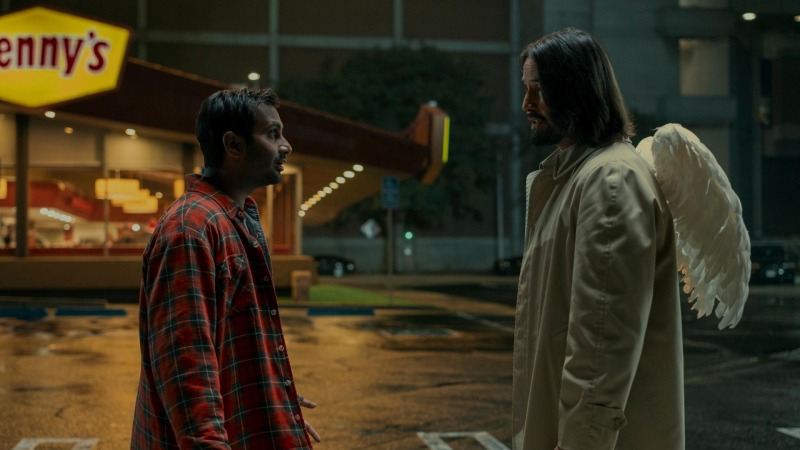Keanu Reeves Lifts Aziz Ansari’s Gentle Comedy Good Fortune

There’s an immediate dissonance in Good Fortune upon realizing that Aziz Ansari is playing someone living out of his car. It’s not that Hollywood actors we know to be well off can’t be convincing embodying characters experiencing economic distress. But usually this happens in serious-minded social dramas, and Ansari, a stand-up comedian turned multihyphenate, has a light presence, right down to the pitch of his voice; he’s gladhanding his way through his acting gigs. When Arj, his character in Good Fortune, meets hardships doing odd jobs, food delivery, part-time big-box shifts, and other piecemeal gig-economy chores, he seems more irritably inconvenienced than bone-deep weary. Yet there’s also value in seeing a comically inclined performer struggle semi-casually through the ritual cruelties of the working poor, even if maybe Ansari’s acting doesn’t always sell it. Arj isn’t a scrappy little guy facing momentary setbacks on the inspiring path to his dream. He just wants to scrape together enough money to find a new apartment.
-

-

-

-

-

-

-

-

-

-

-

-

-

-

-

-

-

-

-

-

-

-

-

-

-

-

-

-

-

-

-

-

-

-

-

-

-

-

-

-








































